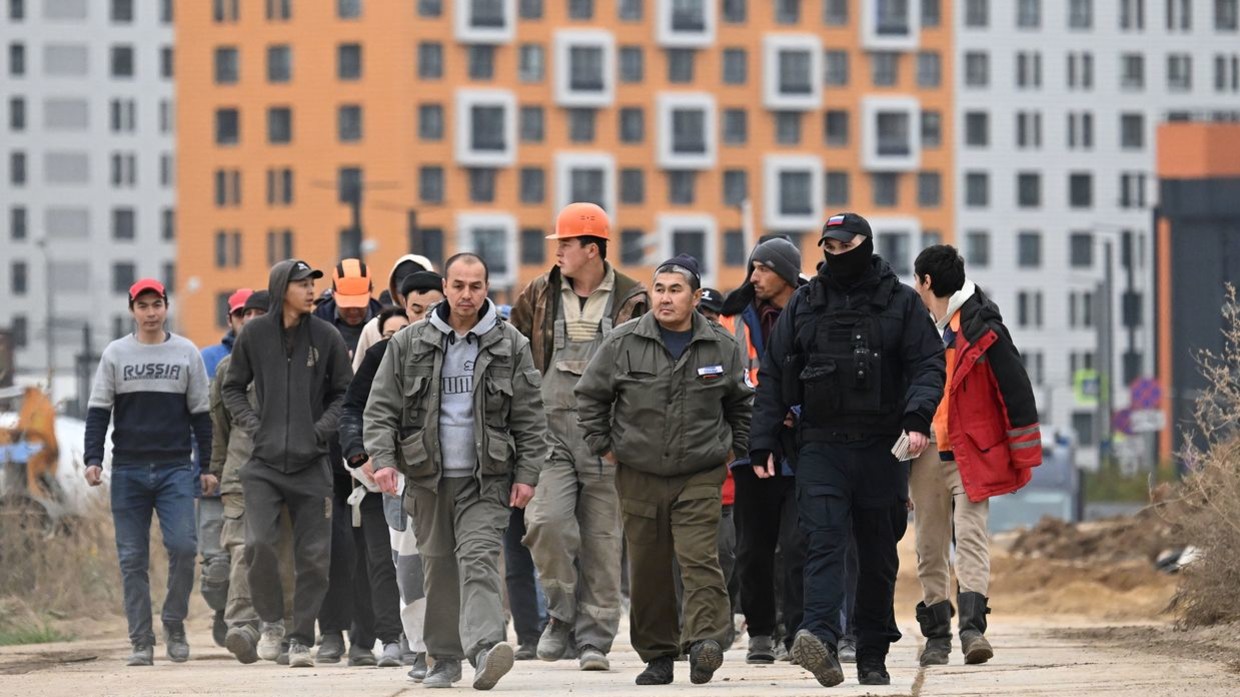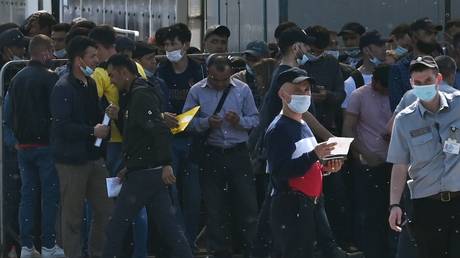Most Russian citizens believe that there are too many immigrants in the country, according to a recent survey conducted by the online recruiting platform hh.ru, the news outlet RBC reported on Monday.
The outlet, which has received a copy of the survey, said that as many as 80% of respondents expressed concern over the number of migrant labourers living in their regions. This opinion was mostly shared by people working in transport and logistics, the automobile industry, security, and construction.
Only 12% said they consider the number of foreign workers in the country to be appropriate, while 4% suggested there could be more. These opinions were predominantly expressed by IT specialists and workers in marketing, retail, tourism, catering and raw material extraction.
When asked about what jobs they believed immigrants were primarily taking, 58% said that foreign workers were mostly being hired for jobs with conditions not suitable for locals. More than half also said that they consider migrant labor to be cheaper for employers, therefore making it more profitable for them to hire foreigners, who could have problems ensuring their rights in Russia are respected.
Nearly two-thirds of respondents also said they consider labor migration to be harmful to the country, with only 13% seeing any sort of benefit. More than half expressed the opinion that migrants tend to take jobs that could have been given to locals.
The poll comes as Russian legislators have been looking to tighten the country’s immigration laws and grant internal affairs agencies broader powers to deport foreign nationals amid concerns of growing illegal migration.
According to Russia’s Ministry of Internal Affairs, there are currently some 6.2 million foreign citizens living in the country, which includes an estimated 740,000 who are there illegally.
Last month, the ministry announced that it was in the process of creating a registry for migrants who have no legal basis for staying in the country. Those included in this list, which is set to be launched next year, will be blocked from accessing a range of services in the country and will not be allowed to use banking services, drive vehicles, enter or dissolve marriages and register property, among other things.


